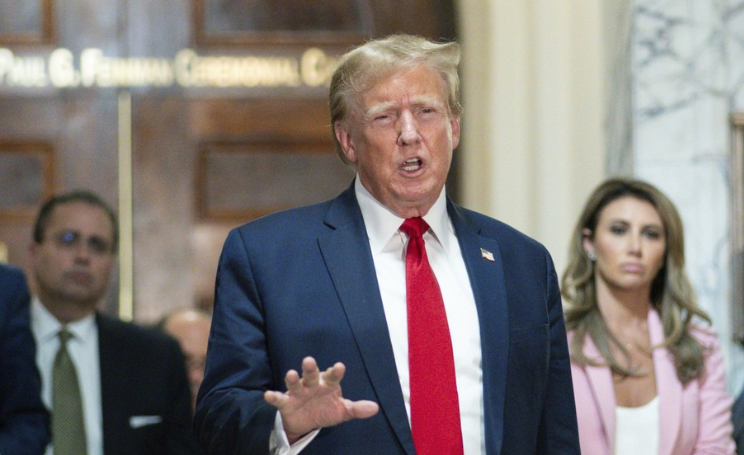Judge Arthur Engoron expressed nostalgia as he oversaw the final day of testimony in Donald Trump’s civil business fraud trial, hearing from 40 witnesses over 2½ months.
Despite the judge’s prior ruling that Trump was liable for fraudulent statements, closing arguments are scheduled for early January, and other claims and penalties remain to be decided.
The trial has revealed insights into Trump’s finances, his relationship with lenders, and his aspirations to become an NFL owner.
Trump’s legal issues have not significantly impacted his standing in the Republican presidential race; he maintains a strong lead in national and early-state polls.
The trial also saw Trump turn courtroom appearances into campaign events, where he criticized the proceedings as unfair persecution.
Deutsche Bank’s role in loaning hundreds of millions of dollars to Trump’s company was a central focus of the trial, shedding light on the bank’s eagerness to lend to Trump despite their prior legal disputes.
Trump’s failed attempt to purchase the Buffalo Bills in 2014 was also discussed during the trial, revealing skepticism within the NFL about his approval as an owner.
An anomaly in Trump’s financial statements was uncovered during the trial, where his Trump Tower penthouse was valued at three times its actual size, a discrepancy attributed to a chain of communication within the Trump Organization.
The trial involves six claims, including conspiracy and insurance fraud, and New York Attorney General Letitia James is seeking penalties exceeding $300 million and a ban on Trump doing business in New York.
The judge plans to deliver a decision by the end of January, while Trump’s legal team prepares for appeals.








